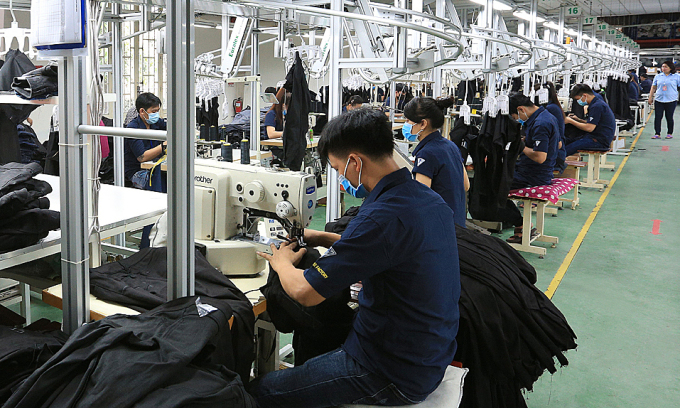Lack of orders, losses leave factories’ survival up in the air
- 18/04/2023
- Posted by: admin
- Category: Uncategorized

Industrial producers are struggling to keep operations going as losses mount due to plunging orders and push many close to bankruptcy.
Pham Thi Oanh’s footwear factory in HCMC’s Thu Duc City has seen revenues plummet by 60% year-on-year as of mid-April and losses are running into billions of dong (VND1 billion = $42,580).
“I have never seen demand as low as this year,” she said. “Other companies I know have seen orders fall by 90%. No one is buying.”
Nguyen Thanh Tuan, CEO of wood products manufacturer Viet Au My, said exports to the main markets, the U.K. and the U.S., have been dwindling.
One of the company’s main buyers in the U.K. recently went bankrupt.
“There were times when we had to shut down the factory for seven to 10 days due to either lack of raw materials or orders,” Tuan said.
High bank loan interest rates and slow approval of new credit have affected cash flows, he said.
“Our material suppliers need money and they are demanding payment while our buyers are asking for extending credit as they cannot sell amid low demand.”
Viet Thang Jeans is struggling to pay loans amid reduced demand, both domestically and internationally, its chairman, Pham Van Viet, said.
A recent report by the HCMC Union of Business Association (HUBA) said eight sectors are in trouble due to lack of orders and losses, and many businesses could go bankrupt soon.
Dinh Hong Ky, deputy chairman of Saigon Construction & Building Material Association, told VnExpress that a survey found that 40% companies in the construction and interior design business are struggling to survive.
If there is no sign of recovery soon, half of them would perish, he added.
They have fired 20-40% of their employees and reduced the working hours of the remaining staff, with some companies only working for two or three days a week.
Tuan said many woodwork factories which had 300 employees last year now have 200.
Their workers used to work eight hours a day plus 50 hours of overtime a month, but now they have the weekends off and no overtime, and their incomes have fallen by 30%, he said.
In Oanh’s factory, around 20% of employees have been laid off and even the best workers have seen a 10% drop in incomes.
“I have tried my best to keep workers with seniority,” she said.
In February Ho Chi Minh City’s biggest employer, footwear maker Pou Yuen, laid off 2,000 of its 50,500 workers due to lack of orders.
Another city footwear maker, R.L VN, did not renew the contracts of 2,000 workers.
The HCMC Union of Business Association found in a recent survey of 100 businesses that, unusually, many did not renew the contracts of large numbers of workers.
In the second quarter of last year 80% of its members paid average wages of VND10 million a month, but the rate has now fallen to 65%.
Tuan said to keep businesses running the government needs to further roll over debts and cut interest rates. Loans of five to seven years should be extended to seven to eight years, he explained.
More public spending is needed to create jobs, he added.
HUBA called on Vietnam’s embassies abroad to help them connect with more potential buyers, especially in new markets.
Businesses expect the difficulties to persist until the first quarter of next year.
VNExpress

